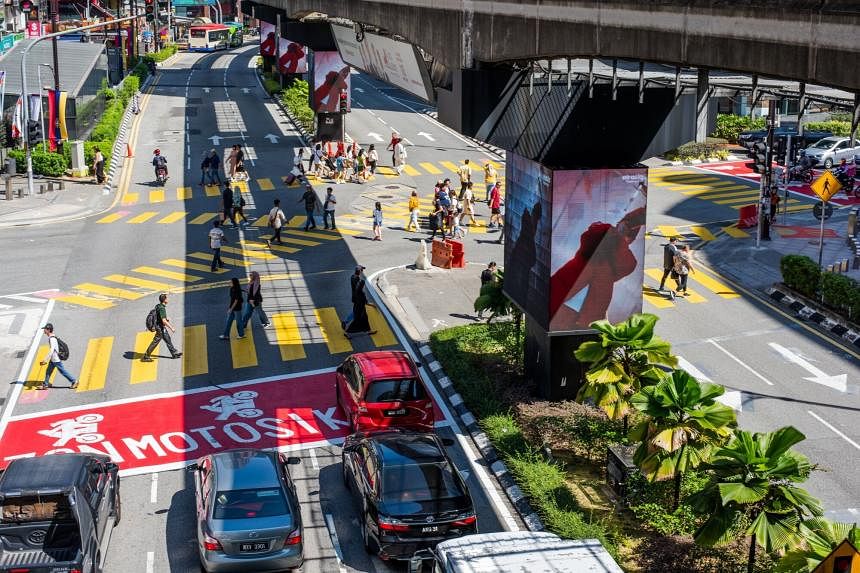KUALA LUMPUR – Malaysia needs to raise wages and invest more in high-end sectors to attract talent back to its shores, say experts.
A recent report showed that nearly two million of its skilled workforce are residing overseas, most of them in Singapore.
Low wages, as a result of company shareholders and investors taking the lion’s share of profits instead of distributing them fairly to employees, are a major factor in pushing Malaysia’s talent to other countries, economist Yeah Kim Leng told The Straits Times.
Professor Yeah, who is director of economic studies at the Jeffrey Cheah Institute on Southeast Asia in Selangor, said a more equitable share of profits for employees can be critical in reducing the brain drain.
“Our labour share of income is lower than in many other countries. The global average is that more than 40 per cent of the company’s profits is shared with the employees. In Malaysia, the average is 25 per cent,” he said.
“We need to increase employees’ share in the profits and be more equitable in distributing company surpluses.”
In the third quarter of 2023, Kuala Lumpur had the highest median monthly wage of RM3,800 (S$1,080) in the country, chief statistician Mohd Uzir Mahidin said in January. In Singapore, the median nominal income was $5,197 in 2023, based on data from the Ministry of Manpower.
A Feb 19 report by the Department of Statistics Malaysia (DOSM) showed that more than 80 per cent of Malaysians working in Brunei and Singapore were in the skilled and semi-skilled categories.
Research and consulting firm DM Analytics’ head of research, Dr Zouhair Rosli, said Malaysia’s lack of high-quality investments is another reason behind the low wages and brain drain.
At the Malaysia Economic Outlook 2024 forum on March 6 organised by think-tank Institute for Democracy and Economic Affairs, Dr Zouhair said that in 2006, almost half of the country’s investments were in the information and communications technology, digital and machinery sectors. But today, more than half of the investments fall under infrastructure – which is not a high-quality investment.
In another report on March 4, Khazanah Research Institute said that in 2021, only 43.4 per cent of graduates were employed in jobs that matched their qualifications.
Another 48.6 per cent were forced to accept low- or semi-skilled jobs with low pay to avoid unemployment, according to the report Shifting Tides: Charting Career Progression of Malaysia’s Skilled Talents.
In a reply to ST on Feb 27, Malaysian government agency TalentCorp said there are 1.86 million Malaysians – or 5.5 per cent of its 34 million population – working abroad, with 1.13 million of them – or 3.3 per cent of the population – living in Singapore.
Other popular destinations for the Malaysian diaspora are Australia, the United States, Britain and Canada.
Quoting the 2019 Hays Asia Overseas Returnees Report, TalentCorp group chief executive officer Thomas Mathew noted that there are many reasons for Malaysians choosing to relocate overseas.
“Malaysians state that the challenges they face when searching for jobs back home include unsuitable remuneration, unsuitable job opportunities that do not match their expertise and qualifications, unfamiliarity with local job market conditions, and difficulty of foreign spouses and children in adapting to the culture,” he said.
TalentCorp was set up in 2011 to attract overseas Malaysian professionals and workers under its Returning Expert Programme (REP).
Successful applicants receive a flat tax rate of 15 per cent for up to five years, instead of the 25 per cent that most of them would otherwise pay. They also receive a tax exemption for one car of up to RM150,000 and a tax exemption for all personal effects brought into Malaysia, limited to one shipment.
Since its inception, the programme has received a total of 10,839 applications and approved 6,848.
Those who failed in their bid did not meet the six criteria of the REP, including having at least three years of overseas employment and no earned employment income in Malaysia during the period.
On Sept 23, 2023, Prime Minister Anwar Ibrahim told the Malaysian diaspora in New York that relevant ministries, including the Investment, Trade and Industry Ministry, Economy Ministry and Higher Education Ministry, were engaging Malaysian talent to get them to return and contribute to Malaysia’s development.
The brain drain problem is a longstanding one, initially involving students from minority communities, such as Chinese and Indians, who had difficulty getting into public tertiary institutions as there is a quota system favouring Malays under the affirmative action policy.
But, now, even Malay professionals and workers are moving abroad for greener pastures.
Associate professor in dietetics Hazreen Majid, from the AECC University College in Britain, told ST that he left Malaysia in 2023 to pursue better career opportunities.
He finds that employers abroad value meritocracy instead of familial connections when it comes to promotions.
“Malaysia is always home for me and my family. But to progress, I needed to migrate. Here, my progression is based on hard work instead of nepotism. Someone’s position isn’t dictated by being the child of a former university dean, or something like that,” said the 48-year-old.
For Ms Umi Kaltsom, a 49-year-old nursing manager at Brunei’s Jerudong Park Medical Centre, the weakening ringgit is the main reason she continues to live overseas.
“I earn B$5,000 (S$5,000). That’s more than triple in Malaysian ringgit. If I return home, I would be earning RM5,000. Returning to Malaysia at my age would likely mean lower pay and benefits,” she said, adding that with her current income she can give her mother a more comfortable life.
In a statement on Feb 19, Datuk Seri Mohd Uzir, the DOSM chief statistician, said a possible solution to the migration problem would be changing the brain drain narrative to brain circulation.
This concept refers to Malaysians returning home after a predetermined period and bringing back valuable expertise and experience they have acquired overseas to contribute to the nation’s development.
“It is essential to view this concept more comprehensively and systematically, to leverage the ‘brain circulation’ concept as a strategy to entice the Malaysian diaspora to return or contribute to Malaysia’s economy,” he said.
However, Singapore Institute of International Affairs senior fellow Oh Ei Sun told ST that the change of narrative is not as simple as it seems.
He said there are several obstacles to its successful application in Malaysia, even though the concept has been successfully implemented elsewhere, such as in Bangalore, India, where information technology professionals have returned home and established their own start-ups.
“The mainstay of business here is that of collusion between politicians and businessmen. Even start-ups would have to work with politicians in the hopes of monopolising projects, instead of focusing on competitiveness and research and development of new technology and products,” he said.
“At the same time, the well-known preferential status accorded to the Malays discourages many non-Malays from returning.”


